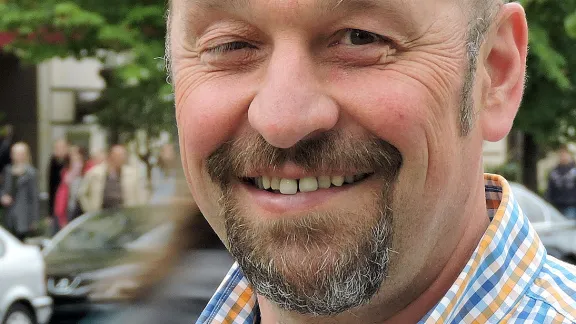
Prof. Dr Traugott Roser. Photo: private
Practical theologian Professor Dr. Traugott Roser explains why religious organizations should support palliative care for the sake of millions of seriously ill children worldwide
MÜNSTER/GENEVA – Who will invest in a nine-month-old girl who has lost her upper and lower limbs through frostbite in the Afghan winter? Worldwide, 20 million seriously ill and dying children depend on palliative care to alleviate their pain and other serious symptoms of their terminal diseases. Only one percent of them really have access to it. Unspeakable suffering could be alleviated if the health authorities of many countries enabled palliative care.
In numerous countries there are reservations about whether this is necessary, frequently on the basis of cultural mores and seemingly religious arguments. But no child should have to bear suffering that could be avoided through better care structures. No child should be excluded from medical and spiritual care because he or she has the wrong sex, has poor parents or no parents at all. It is possible to give children hospice and palliative care everywhere.
In order to promote worldwide availability of palliative medical care, the Maruzza Foundation organized an international conference on 10 November in Vatican City, in cooperation with the Pontifical Academy for Life. The Maruzza Foundation is a public-benefit organization based in Rome. Since 1999 it has been active in raising awareness and advocating for improved palliative care. It also provides continuing education in multi-disciplinary teams for different health professionals. The foundation invited affected families to the conference along with experts from the fields of medicine, human rights and theology. Representatives of different religions came from all five continents.
With my experience in the field of pastoral and palliative care I was invited to represent the Lutheran World Federation at the conference. Together we drew up a “Religions of the World Charter for Children’s Palliative Care”. All children – regardless of their age and development – have a right to the best possible alleviation of their suffering, because they have their own inherent worth and dignity.
The more than 40 participants included Dr Anne Merriman from the Uganda hospice, who was nominated for the Nobel Peace Prize in 2014, medical ethicist Rabbi Avraham Steinberg from Jerusalem, Joanne Wolfe, who teaches pediatric palliative medicine in Harvard, and MR Rajagopal, the founder of Pallium India. Russian Orthodox Archpriest Alexander Tkachenko reported that pediatric palliative medical care is free in Russia. Buddhists, Muslims, Hindus, representatives of many Christian churches all shared the endeavor to underline that religions have a positive attitude to hospice care.
Above all, I was impressed to see people from different traditions working on a joint declaration. In this charter we draw attention to the special spiritual needs of children and call on the faith communities to provide trained pastoral carers and to make health staff aware of spiritual questions. We also invite hospitals and hospices to work with chaplains and other clergy.
The Charter of Rome reflects our hope in the positive power of religions when they join together and recognize the unconditional value of life in its most vulnerable form: represented by a child with only a slight chance of survival.
Prof. Dr Traugott Roser, Professor for Practical Theology at Münster University, Germany, collaborated in drafting the charter on behalf of the Lutheran World Federation.


